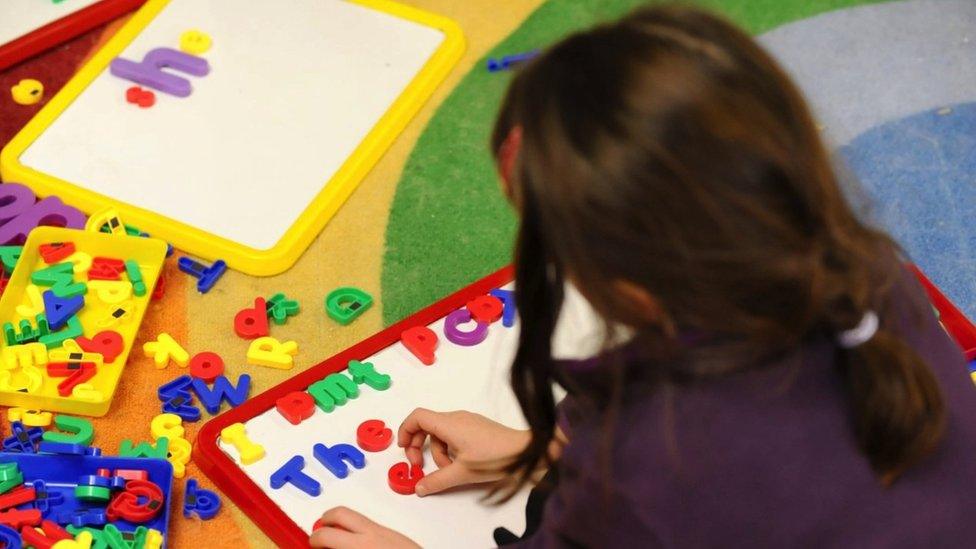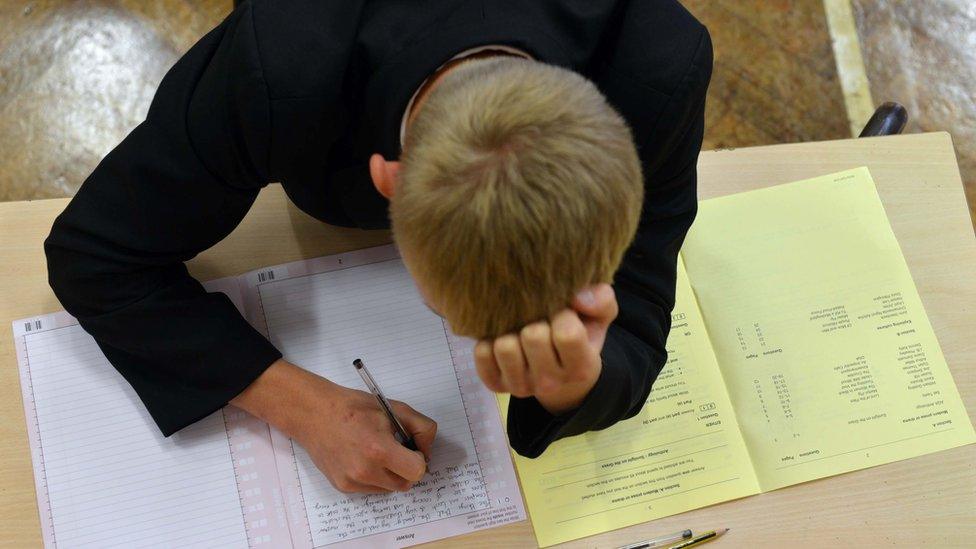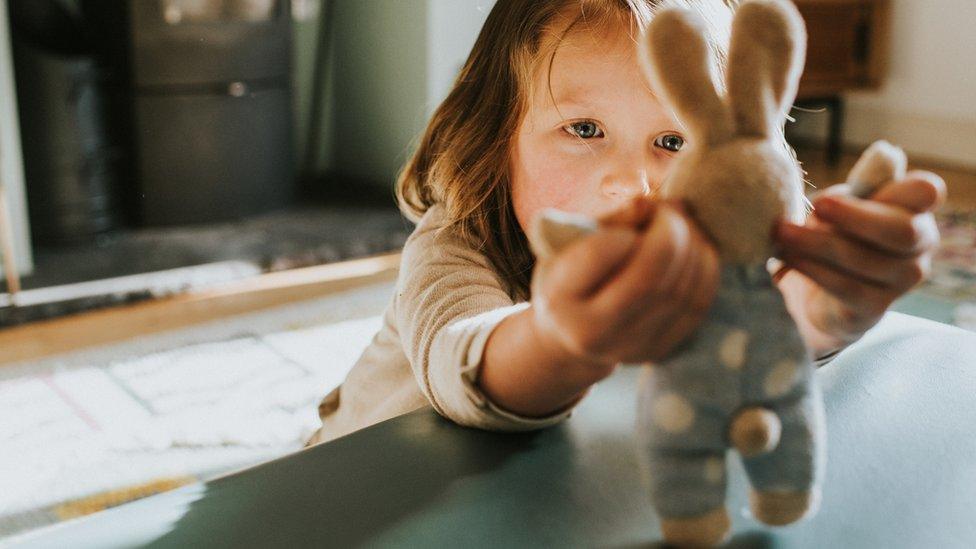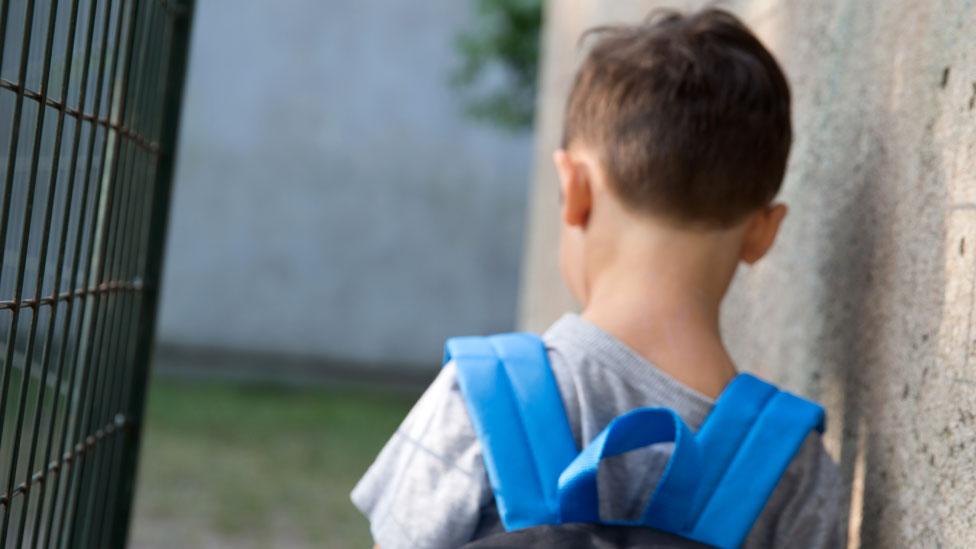Major rise in worrying among North Yorkshire children since pandemic - report
- Published

A report found 86% of 10 and 11-year-olds in North Yorkshire felt worried most days
There has been a "big increase" in worrying among North Yorkshire's primary school pupils since the Covid pandemic, a report has found.
The public health report found 86% of children aged 10 and 11 said they worried about things "most days".
In 2018, the figure was much lower at 61% and in 2014, it was 76%.
The report highlighted the impact of the pandemic and found the top worry recorded for boys and girls was that a family member would die.
The document, from county Public Health Director Louise Wallace, was being debated by North Yorkshire Council on Friday.
"Children and young people were significantly affected by the pandemic, with disruption to their education, their health and their ability to socialise with their peers and even their own extended families," Ms Wallace said.
"We need to work hard therefore to ensure that the effects on their development, mental health and wellbeing and school attainment are not lifelong."
As well as increased worries, the report found that primary-aged children in the county were "less resilient" than in previous years, with 22% scoring low on resilience, compared to only 15% in 2024.
"Overall we see children emotionally less able to cope with stress and worrying more," the report said.
Key findings
86% of North Yorkshire's pupils aged 10 and 11 felt worried "most days", compared to 61% in 2014
22% of primary-aged pupils scored low on resilience, compared to 15% in 2014
42% of home-schooled secondary school-aged children cited "stress and anxiety" as their reason to learn at home
21% of children aged six and seven said they had friends online who they had never met in person
60% of six and seven-year-olds said they knew how to be safe online
27% of boys and 41% of girls "sometimes felt afraid" to attend school due to bullying.
Other issues looked at in the report included home schooling, social media, absence from school and sleep.
The report said that the number of secondary school-aged children being home schooled in the county had continued to rise since Covid - up from 550 in 2021 to 665 in 2023.
The most common reasons given were stress and anxiety - cited by 42% of children who had chosen to be home schooled.
Around one in six primary school pupils were persistently absent from schools in North Yorkshire, which the report said was "worrying".
"Emotionally based school avoidance is a priority for our mental health system," it said.
Social media was also explored, with 21% of children as young as six saying that they had friends online who they did not know in person.
Only 60% of these young children said they knew how to be safe on the internet.
"Primary school children are now embracing technology, living in a digital age with no experience of the world that went before," the report said.
"However, this creates significant inequalities, particularly in the oldest years, between those who have the means to possess the latest kit and those who are dependent on hand-me-downs, or cannot afford any device or the connectivity."

Secondary-school pupils sometimes felt afraid to go to school due to bullying
The report added that while secondary school-aged children recognised being online would not always be a good experience, they felt obliged to stay on social media.
"It has become an essential part of learning and socialising," it said.
The report also found bullying had affected a greater percentage of pupils since before the pandemic.
Pupils being "pushed or hit for no reason" had gone up from 19% in 2018 to 27% in 2023.
Around 27% of boys and 41% of girls also told the report they "sometimes felt afraid" to go to school because of bullying.
An online programme called The Go-To has been developed by the NHS and North Yorkshire Council to support young people in the county.

Follow BBC Yorkshire on Facebook, external, X (formerly Twitter), external and Instagram, external. Send your story ideas to yorkslincs.news@bbc.co.uk, external.
Related topics
- Published21 October 2023

- Published4 February 2022
